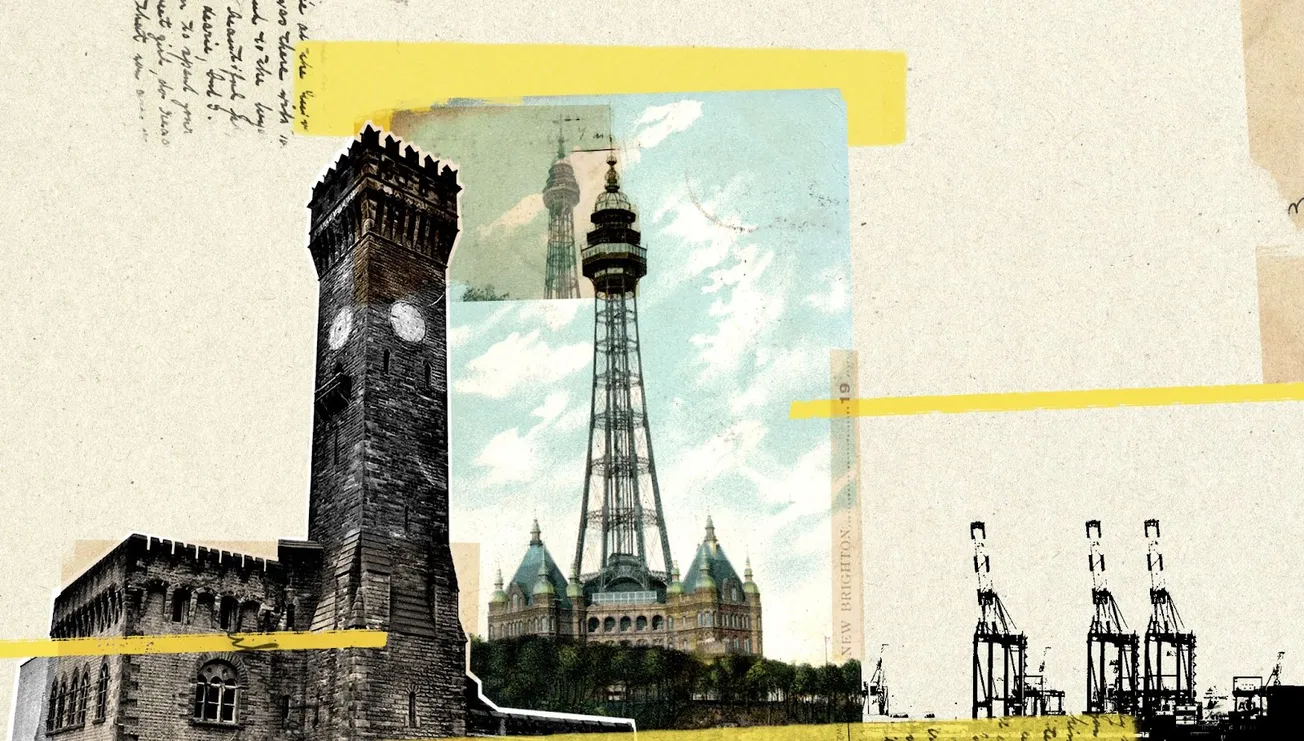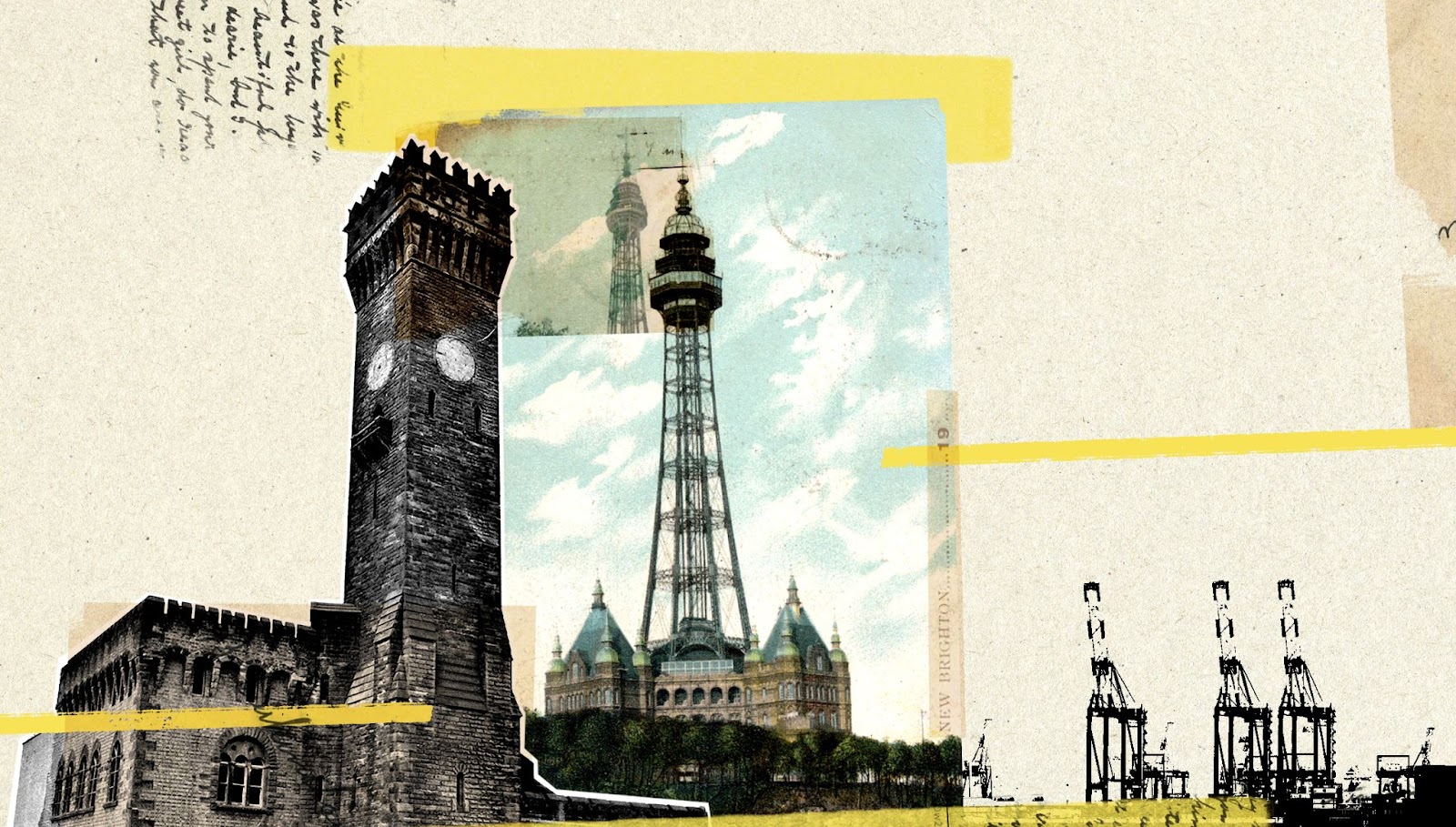Left Bank, or left behind?

Why are more than half of Wirral’s regeneration projects now considered “in doubt” or “unachievable”?
Dear readers — Over the summer, the Peel Group submitted its 30-year, £5bn “Liverpool Waters” vision, aiming to transform 150 acres of dockland into “a sustainable world-class, high-quality, mixed-use waterfront”. Unable to be contained by a mere river, Peel on the other side of the Mersey also plans to convert 500 acres, making “Wirral Waters” the largest regeneration project in the UK.
However, by September, a council report stated that over half of Wirral’s regeneration projects — many once spearheaded or backed by Peel — were “in doubt” or “unachievable”. In today’s edition — the first part of a two-punch combo on Wirral’s history and future — Laurence draws on his own experience of growing up in a left-behind town and asks why the peninsula must miss out while its neighbouring city’s projects keep gathering steam. Look out for part two coming this weekend!
Your Post briefing
Liverpool schools are being offered use of an artificial intelligence (AI) platform to help teachers customise lessons to individual children and mark homework. Regional mayor Steve Rotheram struck a deal with Century Tech to pilot the scheme, saying he hopes it will lead to a national roll out. In 2021, Century’s founder and CEO Priya Lakhani attracted controversy by claiming without evidence that the AI model can predict with 96% accuracy whether a child is autistic, leading to comparisons with biotech fraudster Elizabeth Holmes.
A Liscard man has pleaded guilty to five offences in connection with the Life Wirral scandal. Elliot Miller admitted to common assault, a Section 5 public order offence, and assault by beating. Merseyside police launched an investigation into the SEN school after an undercover BBC Panorama reporter witnessed homophobic language, manhandling of pupils, and mocking of disabilities by staff. Two other men have been charged. Read The Post’s investigation into Life’s CEO here.
Three Liverpool men have been jailed for smuggling £2m worth of cannabis via Liverpool docks. Weiji Chen, 29, John Kinsella, 34, and his brother Luke Kinsella, 23, were arrested in January when Cheshire police intercepted their lorry carrying 334kg of drugs en route from Liverpool to a Widnes storage unit. Chen and the Kinsellas were sentenced to a combined 17 and a half years.
Left Bank, or left behind?
by Laurence Thompson
When I grew up there in the 1990s, New Brighton was a ghost town, haunted by its own lost future. The sun-faded map boards on the seafront still bore the lodestars of a dead galaxy: the famous Tower, once the tallest building in Britain, demolished and sold for scrap metal by the 1920s; the Winter Garden theatres, left to rot since the 1960s; the Tower Ballroom, which once hosted The Beatles, destroyed by fire in 1969; the ferry terminal, which stopped sending boats across the Mersey in 1971 from the old pier, torn down in 1978; the Art Deco swimming baths, the largest lido in the country, irreparably damaged by a 1990s storm and subsequently filled in. Even the sleazy Chelsea Reach nightclub where my parents met had become a boarded-up relic.
Liverpool merchant James Atherton, New Brighton’s founder, had originally dreamed up a seaside resort for Lancashire gentry. By the time I lived there, the place abounded in rumour and false memory, a kind of liminal space between history and imagination. I remember credulous tales of the vast network of hidden tunnels beneath the town dug by 18th century smugglers, and elder denizens inexplicably claiming to remember New Brighton Tower itself ablaze. When something new was finally built there in 2001 — an ugly 26-foot statue of Pierrot, erected with £25,000 of Wirral Council and EU money — you’d hear mistaken grumblings about how it must have cost a million, so ready were people to believe the worst of the town’s mismanagers. However much it cost, the clown felt like an exclamation point on seventy years of humiliating decline.

“There’s a temptation, when you write about New Brighton, to focus on the past,” writes David Lloyd here in The Post. “But this town isn’t easily defeated.” In the last thirty or so years, New Brighton has been transmuted from a faded photocopy of a Victorian resort into a colourful and vibrant town of murals, art bars, start-ups, cafes, and entertainment complexes. “The sea is the only real constant here,” writes Lloyd. Now that “local boy made good Dan Davies has ploughed millions” into the place, “the past can perfectly illuminate a path to the future.”
For better or worse — and I agree with Lloyd that the metamorphosis of the once-grand lido into a Morrisons feels like enshittification — that’s all history now. New Brighton is no longer, to steal Matthew Arnold’s phrasing, wandering between two worlds, one dead, the other powerless to be born. It’s possible to lament the stolid soullessness of the Marine Point shopping monstrosity while acknowledging that at least it’s something, in the way a 25 grand tinfoil clown wasn’t. But what of the future? That mix of private investment and public spending has tilled the soil for the New Brighton Marine Promenade Master Plan, a Wirral Council initiative to further alchemise the town with a brand new lido, a theatre plaza, and… a trackless land train.
That’s not all for the “Paradise Peninsula”: this week, the BBC breathlessly re-wrote a Wirral Council press release about a re-imagined Birkenhead, including hotels, a new market, more green spaces, a new leisure centre, and 2,000 new homes. Between the Liverpool City Region Combined Authority and Homes England, a total of £51m has been secured for the Hind Street Urban Garden Village, a project to convert 65 acres of a former gas works into a bustling neighbourhood. Last but by no means least we have Wirral Waters, “the largest regeneration project in the UK” that will transform “the Left Bank of the River Mersey into an internationally recognisable destination,” according to Peel, the infrastructure and property investment business spearheading the plan.
Those loud exhalations you can hear are 323,000 Wirral residents not holding their breath.
Liverpool deserves great journalism. You can help make it happen.
You're halfway there, the rest of the story is behind this paywall. Join the Post for full access to local news that matters, just £7/month.
SubscribeAlready have an account? Sign In

Latest
Northern Powerhouse Rail is back on track. We think...
The clockmaker of Wavertree
One of Merseyside’s oldest sports clubs still plays every Saturday
Does Liverpool have a ketamine problem?
Left Bank, or left behind?
Why are more than half of Wirral’s regeneration projects now considered “in doubt” or “unachievable”?